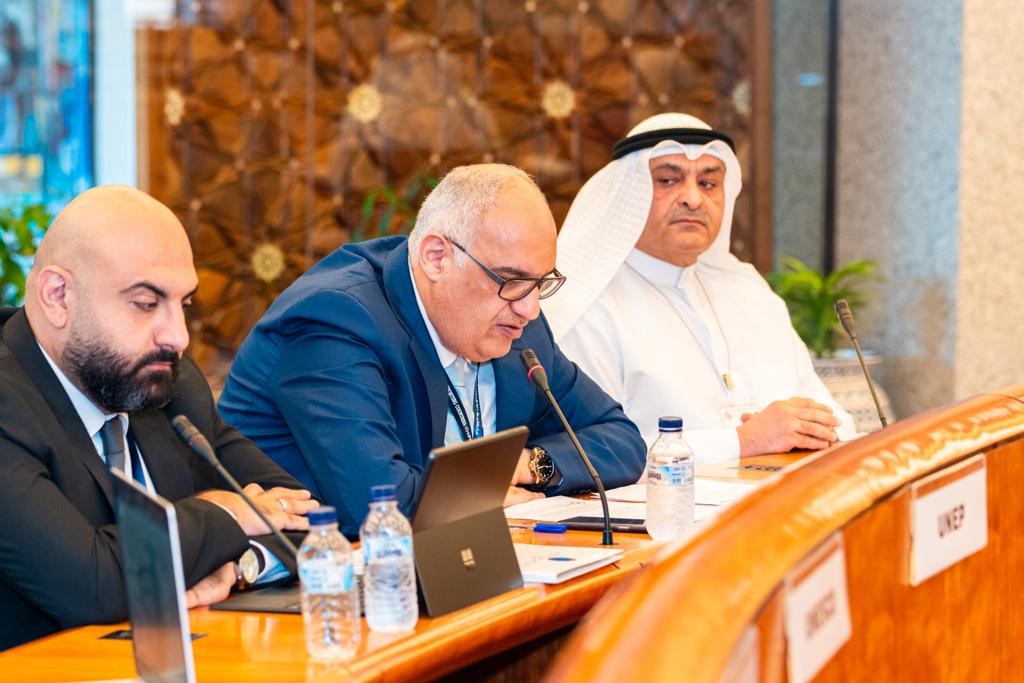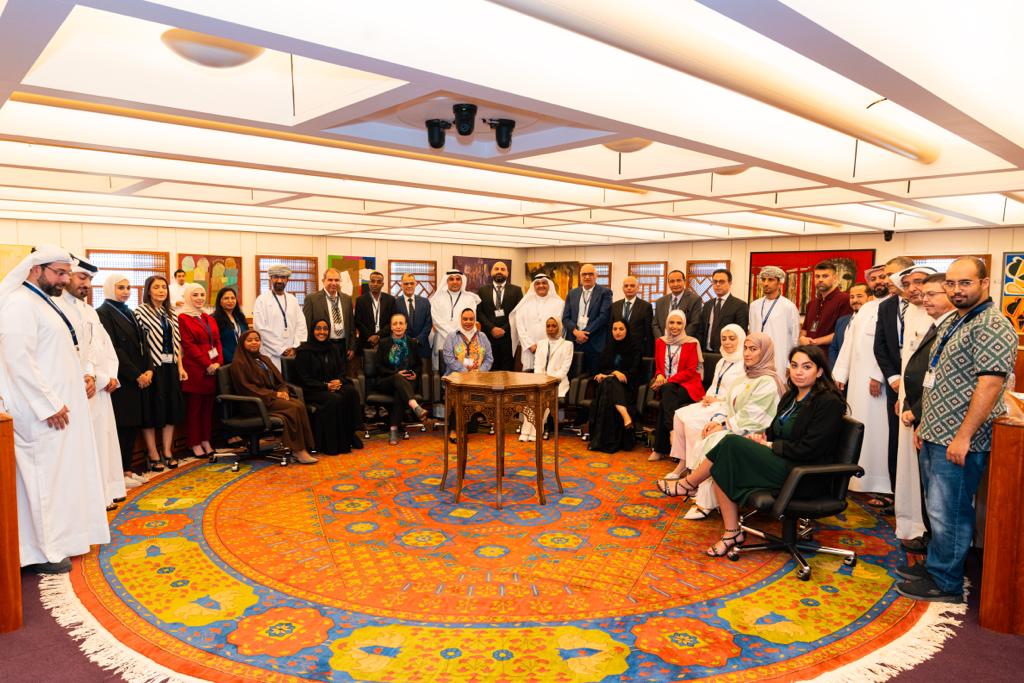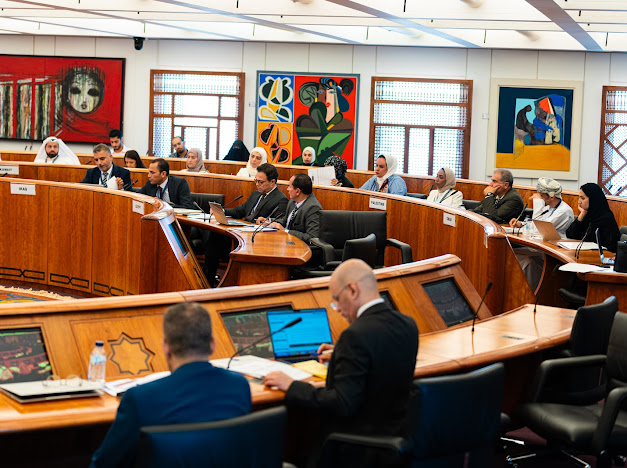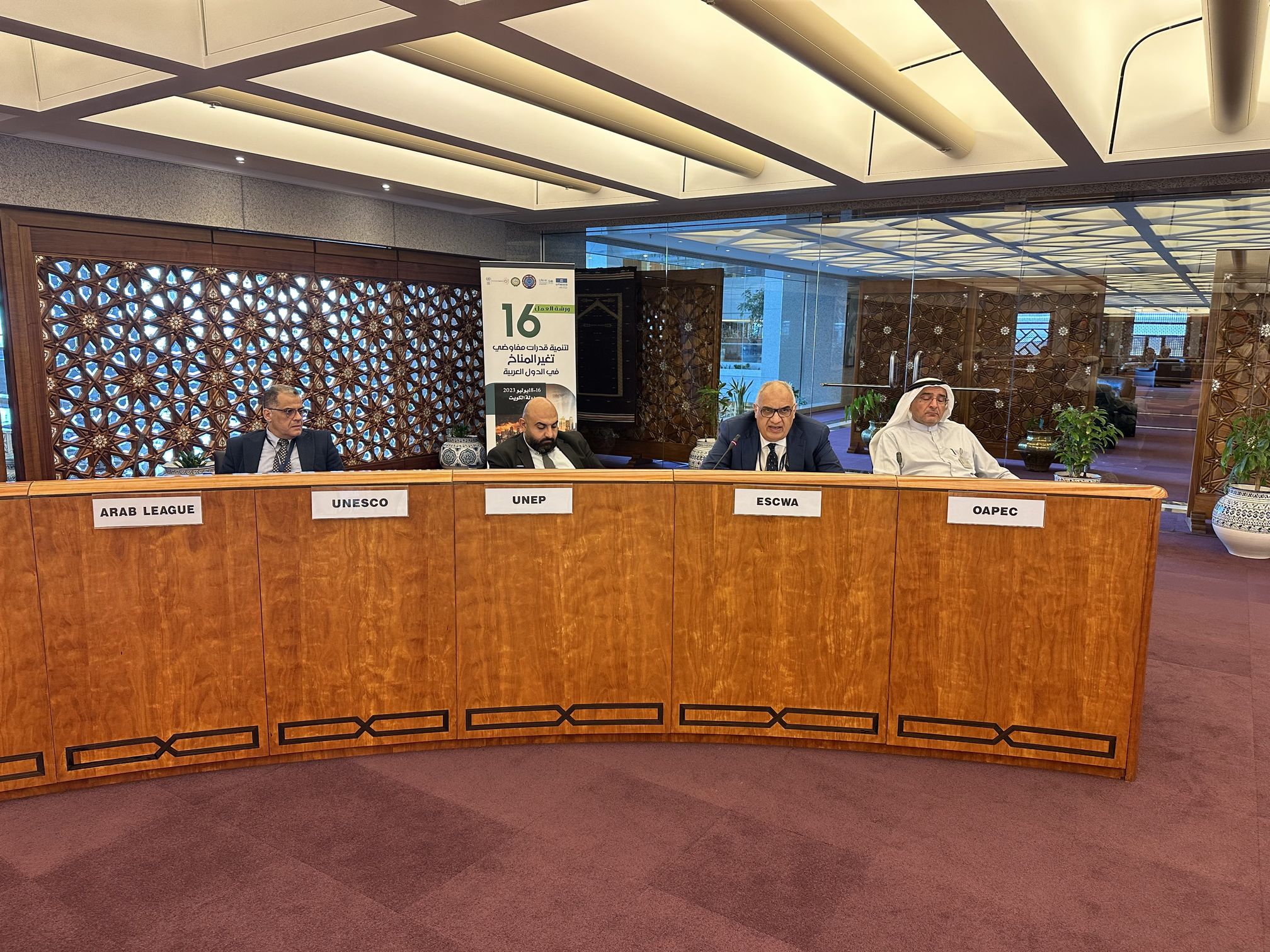ESCWA is organizing the sixteenth regional training workshop on capacity development for climate change negotiations for the Arab countries. The workshop aims to support Arab countries in implementing the outcome decisions of the Conference of the Parties 27 (COP 27) and Bonn Climate Change Conference, as well as discuss critical issues for the upcoming COP 28. It also addresses regional and national priorities and concerns in relation to the implementation of response measures, circular carbon economy, and adaptation efforts in the water sector.
The opening of the workshop featured representatives of ESCWA, league of Arab States, UNEP/ROWA, and UNESCO/Cairo Office as well as the Secretary General of OAPEC.
Discussions kicked off on the outcomes of the 58th session of the Subsidiary Bodies (SB 58) in relation to loss and damage, finance, response measures, global stocktake and adaptation. There were also discussions around the IPCC 6th assessment report.
The rest of the first day was dedicated to the agenda item on impacts of implementation of response measures. Updates on the work programme of the Forum on Impact of Implementation of Response Measures and the Katowice Committee of Experts (KCI) were presented as well as latest related negotiations, including just transition guidance, economic diversification, and response measures for adaptation. Case studies of three developing countries were also presented by experts on development and application of tool kit for assessment of impacts of implementation of selected response measures (global and national).



